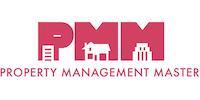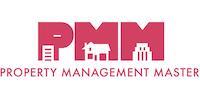The Impact of Inflation on Property Managers

The effects of inflation are without a doubt evident in our daily lives. For the first time since 1981, consumer price inflation has risen to a record-breaking astronomical rate of 8.6%, as reported by the Bureau of Labor Statistics. The prices of basic commodities such as fuel, building materials, and groceries have significantly increased. The consequence of such an economic clime has led to changes in consumer behavior, most especially buying habits. Corporate America is in a rush-hour to attract enough workers, and prospective house buyers are reconsidering the allure of owning a home.
In such an unprecedented time, what bearing could this possibly have on property managers and landlords? The cost of labor and supplies are on the rise, and rental properties are not an exemption from rising costs. Hard times call for creative thinking and the application of the right knowledge and strategy. By so doing, property managers will be able to offset some of the rising costs and identify opportunities for growth.

The Dawn of a Gloomy Era
As a result of rising inflation, property managers may encounter a number of unfavorable factors, however, proper knowledge on how to navigate murky waters and mitigate the effects will save the day.
The Rising Costs in Labor and Supplies
Property managers, like most U.S consumers, began noticing a spike in the prices of supplies. Property management companies are maximizing their shrewdness and searching for lower-cost alternatives for commodities like repair parts, office equipment, cleaning supplies, etc.
In addition to the rising costs of commodities, shortages in labor compound the problem. This makes it incredibly hard for property managers and vendors to fill in vacancies in their workforce. Consequently, the cost of labor has significantly increased as US employers endeavor to attract and retain talent with high-paying salaries and attractive benefits.
We’re witnessing an extension in work timelines and repair and renovation projects. Projects that would have typically taken a couple of weeks three years ago are prolonged by months. More so, vendors are trying to avoid the responsibility of bearing costs, and as a result, vendors who paid higher salaries want to pass costs on to property management companies who hire them for their services. This present reality leaves property managers with very few options, they will either have to increase rent prices, cut down on services and amenities or delay non-essential work.

Property Taxes and Insurance
A steady rise in inflation translates to an increasing value in rental properties. This would seem like good news for homeowners, however, when a property goes up in value, property taxes and insurance will most likely go up as well. Such is the case because property taxes and insurance are assessed by the value of a property.
Rising costs will make landlords increase rent prices and minimize costs in order to stay within their budget. It’s advisable for property managers to come up with solutions that enable them to work well with landlords. Proactive measures will enable property managers to save money and offset their overhead.
New Construction
Even though associated costs of construction are high, real estate investors are gradually picking up the pace with new constructions. Housing materials have gone up considerably by 19% and according to CNBC, the cost of lumber is on the rise again. Factors like new tariffs on Canada and western wildfires account for the rising costs of lumber. More so, the construction sector has been affected by the scarcity of labor, coupled with that, reports from the National Association of Home Builders predict the construction sector will need about 2.2 workers over a 3year course to meet rising demands.
How does a slow pace of New Construction affect Property Managers?
New projects have been delayed or canceled due to increasing costs of construction and labor shortages. A continuous reduction in new projects could shrink the number of rental and commercial properties in need of property management services.
Nonetheless, it is not all doom and gloom for property managers. Hard times call for innovative and adaptive solutions selling in the business of property management. Property managers can focus on current properties and device new means of generating revenue whilst offering exceptional services and added value to their tenants. For example, the U.S Census Bureau reported an increase in online retailers during the Covid-19 pandemic. With this in mind, property managers can get creative by providing package lockers for a fee to an increasing number of residents receiving packages.
Take Advantage of the slow rate of New Construction
Though it is true that fewer rental properties can stifle the growth of the management portfolio of most property managers. However, a declining number in the sale of homes means more renters in any given area.
An Upward Surge in the Rental Market
There are a few reasons that will potentially keep the rental market on an upward surge. Prior to 2022, predictions showed the construction of single-family homes was supposed to restart slowly in 2022.
Furthermore, low inventory and high demand continue to spike home prices. Inflation has weakened the dollar and contributed to higher price tags on new homes. Additionally, a huge deterrent to potential home buyers is the high taxes on properties caused by inflation.
For the first time since 2018, the Federal Reserve has indicated raising interest rates. This means mortgages will be more costly, and these factors aren’t encouraging for the American dream of first-time home buyers. Prospective home buyers are less likely to buy houses and more likely to lean towards rental opportunities until interest rates level out. Inflation has given homeowners the opportunity to offset their own costs with dwindling vacancy rates and higher rent. Safe to say this has all the earmarks of an owner's market.
Rental rates go up when there are fewer available rental units.
According to the US Census Bureau, many renters stayed put due to factors of uncertainty caused by the pandemic. As a result, vacancy rates were down to about 5.8% nationally. With the reopening of the economy and increasing travel, we have gone past the phase of immobility from renters. Inflation has increased the demand for rentals, and this has the makings of an owner’s market with an opportunity for property managers and landlords to raise rents.

The Increasing number of Affluent Renters
The costs of doing business are up and as the days go by the costs of living are more expensive. Even though inflation has led to labor shortages, interestingly, incomes are increasing. In 2022, the average income is projected to increase by 3.3%(Source: Forbes), what this means is that increases in rents may likely not affect vacancy rates.
Throughout the pandemic, the rental market was fairly negative. Post pandemic, affluent renters played a vital role in making the reality of the rental market a much more favorable story. The rental market has greatly benefited from affluent renters, who as a result of inflation are in stronger financial shape.
Real Estate Appreciation Offsets Inflation
Real Estate has been known to provide a hedge against inflation, the reason being that, appreciation of real estate can be a strong counterbalance to inflation. The average national rate of appreciation on real estate is within the range of 3% to 5%. Nonetheless, locations that are coveted and in high demand tend to see higher appreciation rates than the national average rates. Good examples are California and Boston, Between 2017 and 2021, homeowners in California saw an average of 5.6% real gain per year and an annual appreciation rate of 8.3% minus 2.7% inflation rates. In cities like Boston, MA, the average appreciation rate was 7.6% over the last 10 years.
Let’s assume a prospective homeowner acquired a single-family rental unit for $300,000.00 the current price of the unit will be valued at $315,000.00. Additionally, if the cost of the rental unit is calculated with the inclusion of factors like inflation, its worth would be about $316,000.00. While there’s an appreciation in the value of rental properties, homeowners still collect rent. Ultimately, this neutralizes inflation
Final Thoughts
So far this year, property managers and their owners have been faced with a lot of challenges. The impact of Inflation, labor shortages, and supply shortages, makes it difficult for property managers to provide exceptional services and added value without increasing rent prices. Moreover, the reality of fewer construction projects will be a huge deterrent to portfolio growth in property management services.
Looking on the bright side, with a little creative thinking, property managers can devise new methods and come up with ways to cut unnecessary costs while raising rental prices and fees.
Share this post with a friend!
Disclaimer: The content on this blog is for informational purposes only and is not intended as legal or advice. Consult with a qualified professional for specific advice.


























